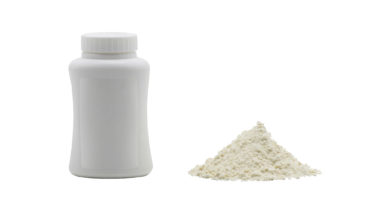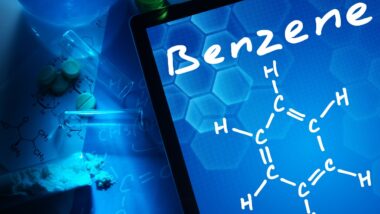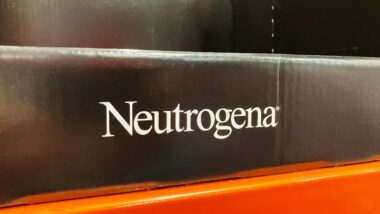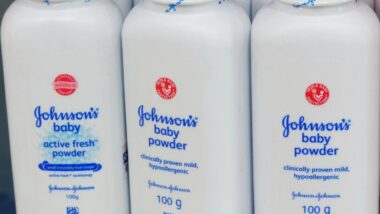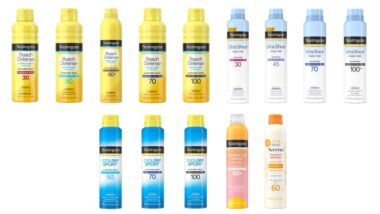Top Class Actions’s website and social media posts use affiliate links. If you make a purchase using such links, we may receive a commission, but it will not result in any additional charges to you. Please review our Affiliate Link Disclosure for more information.
Popular heartburn drug Zantac has been linked with a potential cancer risk, resulting in a Zantac recall. A growing number of consumers are alleging that they developed cancer as a result of taking the medication.
Zantac cancer overview
The widely used prescribed heartburn medication Zantac (also known by its generic name, ranitidine) entered the U.S. market in 1981. Medical providers write some 15 million Zantac prescriptions every year, in addition to over-the-counter versions of the drug.
Unfortunately, Zantac has recently been found to contain the chemical impurity known as N-nitrosodimethylamine (NDMA). NDMA is considered a probable human carcinogen, or a substance capable of causing cancer in humans.
The risk of Zantac cancer has led many drug manufacturers to voluntarily recall ranitidine products and has also sparked a growing number of lawsuits.
While Zantac itself does not cause cancer, studies have found that ranitidine can degrade over time so that it forms the NDMA impurity. Although low levels of NDMA are common — indeed, NDMA can be found in food and water — higher levels of exposure can increase cancer risk.
NDMA may also be found in common foods such as smoked or grilled meats and fish, bacon, cheese, whiskey, beer, vegetables, and dairy products. The contaminant may also be in tobacco smoke, and in cosmetic products such as shampoo.
The dangerous side effects of NDMA may be more likely to occur after prolonged exposure to the contaminant. Unfortunately, many people who take Zantac do so for an extended period of time. For many, the medication may be taken daily to prevent heartburn.
Is Zantac a PPI?
Proton pump inhibitors, or PPIs, are acid reduction drugs that block an enzyme in the stomach wall that produces the acid responsible for many ulcers. Zantac is an H2 (histamine-2) blocker, which blocks acid production in the stomach and helps prevent and heal inflammation and ulcers. PPIs and H2 blockers have similar effects but work differently.
How can Zantac be linked to cancer?
On Sept. 13, 2019, the U.S. Food and Drug Administration (FDA) issued a statement about “low levels” of N-nitrosodimethylamine (NDMA) found in certain ranitidine medications. NDMA is considered a probable human carcinogen, or substance capable of causing cancer in humans.
“Patients should be able to trust that their medicines are as safe as they can be and that the benefits of taking them outweigh any risk to their health,” the FDA noted in its statement. “Although NDMA may cause harm in large amounts, the levels the FDA is finding in ranitidine from preliminary tests barely exceed amounts you might expect to find in common foods.”
The agency warned consumers to be aware of the risk and talk to their doctor with any concerns. Since the original warning in 2019, however, the FDA has taken a harder stance against Zantac and other ranitidine drugs.
Concern about NDMA contamination led the FDA to request all ranitidine drugmakers voluntarily remove ranitidine products (both prescription and over-the-counter) from the market due to a public health risk. Certain manufacturers had already announced voluntary recalls of the drug before the FDA request.
Sanofi-Aventis, the manufacturer of brand name Zantac, voluntarily recalled the product in October 2019, before the FDA issued its widespread recall request. Other ranitidine recalls were initiated by Sandoz, as well as the generic Zantac makers that supply ranitidine to Walgreens, Walmart, Rite Aid, and CVS.
According to the FDA, though the agency only found low levels of the impurity at first, NDMA “in some ranitidine products increases over time and when stored at higher than room temperatures and may result in consumer exposure to unacceptable levels of this impurity.”
NDMA contamination has previously been found in valsartan and other ARB blocker medications.
What is NDMA?
NDMA is an organic chemical. It appears as a yellow liquid with no distinct odor. It can be formed through both industrial and natural processes, according to the Environmental Protection Agency (EPA).
For example, certain processes for cooking and fermenting foods result in low NDMA levels in smoked or cured meats, cheese, alcohol, and other foods and beverages. NDMA may also be found in water due to the chlorination of wastewater or treating drinking water with chloramines.
Although NDMA is now only produced for research purposes, the chemical used to be used in the manufacturing of rocket fuel, antioxidants, and other industrial products. The EPA notes that NDMA may be produced “unintentionally” during chemical reactions – explaining why the chemical has been detected in several medications, including Zantac.
The contamination is especially concerning because NDMA is classified as a probable human carcinogen by the International Agency for Research on Cancer (IARC). This classification is based on studies that showed the chemical caused tumors in the liver, respiratory tract, kidneys, and blood vessels in rats and mice.
Overexposure to NDMA may also be associated with immediate symptoms including headache, fever, nausea, dizziness, vomiting, abdominal cramps, jaundice, enlarged liver, and reduced liver, kidney, and lung function.
Due to the carcinogenic nature of NDMA, there are concerns about Zantac cancer among consumers who took medication contaminated with the chemical.
Are there any Zantac cancer symptoms?

- Fatigue
- Feeling bloated after meals, or even after small amounts of food
- Severe, continuous heartburn
- Severe, continuous indigestion
- Unexplained, continuous nausea
- Stomach pain
- Persistent vomiting
- Unintentional weight loss
Bladder cancer diagnoses affect tens of thousands of adults in the U.S. each year. Symptoms of Zantac bladder cancer may include:
- Blood in urine (hematuria)
- Painful urination
- Pelvic pain
- Back pain
- Frequent urination
(Notably, while the last two symptoms are signs of bladder cancer, they are most often caused by something else entirely.)
NDMA has also been linked with a potentially increased risk of colorectal and gastric cancers. Colorectal cancer is the third leading cause of death in the U.S., according to Cancer.org. Symptoms of colorectal cancer may include a change in stool, rectal bleeding, abdominal cramps or gas, weakness or fatigue, unexplained weight loss, or a feeling that your bowel is never completely empty. However, many colorectal cancer patients report experiencing few or no symptoms of the disease.
In addition to the risk of Zantac cancer, exposure to NDMA may also result in other diseases that may affect the bladder, brain, liver, kidneys, lungs, and stomach. The liver and kidneys may be especially at risk of harm from prolonged exposure to the medication. NDMA may also be harmful to pregnant women and their developing fetuses.
Zantac cancer class action lawsuits
There have been numerous Zantac cancer lawsuits filed, including class action complaints.
In one Zantac class action lawsuit against Pfizer, Inc. (which originally held Zantac’s patent), plaintiff Dana V. says that for 16 years, she regularly took Zantac and only learned of the recent Zantac recalls through the news. Dana claims that she and other consumers would not have purchased Zantac had they known about the contamination issue and potential cancer risk.
“While Defendant represented that its Zantac formulation was safe for use, Zantac contains dangerously high levels of NDMA, rendering the product dangerous and unfit for human consumption,” Dana’s class action lawsuit states.
Another Zantac cancer class action was filed against Sanofi U.S. and Boehringer Ingelheim, accusing the drugmakers of putting patients at risk for developing cancer by concealing information about Zantac contamination.
If you or someone you love has taken Zantac, you may be able to join the growing number of Zantac cancer class action lawsuits and pursue compensation
Zantac cancer lawsuit update
A federal judge has appointed 26 lawyers to lead 203 Zantac lawsuits alleging that drug makers knew that Zantac and its generic counterpart, ranitidine, were contaminated with cancer-causing NDMA, but failed to do anything about it, reports South Florida Caribbean News.
The publication reports that the team of lawyers picked to represent the plaintiffs in the Zantac lawsuits is diverse. Nearly half of the lawyers appointed are women and U.S. District Judge Robin Rosenberg noted during the selection process that she “intended to create a diverse leadership team to represent the plaintiffs’ diversity and give an opportunity to new and small firms, including younger or lesser experienced lawyers.”
The lawyers will be co-lead counsels, plaintiff’s liaison counsel, a steering committee, and a leadership development committee. The team was selected following a two-day virtual leadership interview of more than 60 lawyers, according to the South Florida Caribbean News.
The 203 lawsuits include a class action lawsuit, as well as individual filings. Defendants include major drugmakers, such as Sanofi-Aventis U.S., Pfizer, and Boehringer Ingelheim Pharmaceuticals. The plaintiffs are seeking damages for injuries they say they suffered from the undisclosed NDMA contamination of the heartburn medicine.
Should you join a Zantac cancer class action lawsuit?
A growing number of patients are pursuing litigation against Zantac manufacturers, alleging they were not adequately warned about the Zantac cancer risk.
If you or someone you love has taken Zantac, especially if you’ve since been diagnosed with cancer, you may be able to join the growing number of Zantac cancer class action lawsuits. Pursuing litigation can be a daunting prospect, so Top Class Actions has laid the groundwork by connecting you with an experienced attorney. Consulting an attorney can help you determine if you have a claim, navigate the complexities of litigation, and maximize your potential compensation.
Join a free Zantac cancer awsuit investigation
If you or a loved one was diagnosed with stomach cancer or bladder cancer after taking Zantac or another ranitidine medication, you may qualify to join this Zantac cancer lawsuit investigation. Learn more by filling out the form on this page for a free case evaluation by a Zantac cancer injury lawyer.
ATTORNEY ADVERTISING
Top Class Actions is a Proud Member of the American Bar Association
LEGAL INFORMATION IS NOT LEGAL ADVICE
Top Class Actions Legal Statement
©2008 – 2024 Top Class Actions® LLC
Various Trademarks held by their respective owners
This website is not intended for viewing or usage by European Union citizens.
Get help – It’s free
Join a free Zantac cancer lawsuit investigation
If you qualify, an attorney will contact you to discuss the details of your potential case at no charge to you.
PLEASE NOTE: If you want to participate in this investigation, it is imperative that you reply to the law firm if they call or email you. Failing to do so may result in you not getting signed up as a client or getting you dropped as a client.
E-mail any problems with this form to:
Questions@TopClassActions.com.


